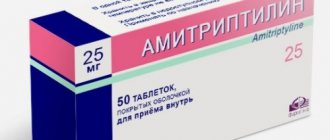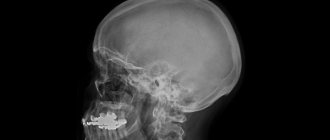Every year, in most developed countries of the world, young men are drafted to serve in the army. Everyone knows that there are a number of diseases that can lead to disqualification from military service. Today, many people are interested in whether they will enlist in the army with VSD in 2020? After all, a huge number of people suffer from this pathology. A special commission checks the condition of the conscript’s body. However, in our country, and in others too, vegetative-vascular dystonia is not considered a serious disease. In general, it is not attributed to diseases, but is considered a somatoform disorder of the nervous system. But those who suffer from VSD (also known as neurocirculatory dystonia) know how much agony and suffering it can cause. Let's figure out how things are going in the army with the VSD officers this year.
What is VSD?
VSD - what is it in simple terms? This is vegetative-vascular dystonia. This syndrome previously had no clear definition. And it was given to almost everyone if the cause of the ailment was not entirely clear. At the moment, VSD has received a clear definition. This is a complex of symptoms caused by disturbances in the functioning of the autonomic nervous system. She is responsible for:
- the nervous structure of the human body, which controls the functioning of all internal organs;
- creation of hormones;
- heart rhythms;
- lung activity and so on.
Are the concepts of army and airborne forces compatible?
VSD and army are often incompatible concepts, since if the body’s activity is disrupted, arrhythmia, oxygen starvation, nervous disorders and fainting can begin. The patient is tearful, there are often sudden changes in mood, and headaches appear regularly. Incorrectly transmitted nerve impulses lead to uncontrolled vascular spasms. But in any case, vegetative-vascular dystonia is not a disease, but only its manifestations. Therefore, the conscript needs a more thorough examination.
Conclusions of military doctors
To be declared unfit or receive a deferment from service, a conscript must undergo a military medical examination. Among the doctors who need to be seen are a neurologist and a psychiatrist, so if you have a history of vegetative-vascular dystonia, you should inform them about the diagnosis.
But VSD is not a guarantee that a person will be declared unfit; in most cases, this ailment is not taken into account by military doctors.
The fact is that the commission at the military registration and enlistment office, like many other specialists, consider vascular dystonia an unqualified diagnosis of diseases that have many symptoms similar to it. Therefore, when checking the health of a conscript, special attention is paid to diseases of the heart, vascular and nervous systems, as well as arterial hypertension.
If during the commission all these ailments were identified, then the military registration and enlistment office can confirm VSD, but at the same time establishing in conclusion that dystonia occurs in a mild form.
This happens due to the erroneous opinion that with normal nutrition in the army, regular physical activity and being in the fresh air, the patient’s condition will normalize and he will be able to get rid of neurocircular disorder.
But in some diseases that occur against the background of dysfunction of the autonomic system, abnormal loads are undesirable and dangerous.
If VSD
is accompanied by serious violations of certain systems of functions, it is necessary to insist on a more thorough examination
Types of disease
Vegetovascular dystonia can be of four types:
- Hypertensive. In this case, the pressure is constantly increased, and the head often hurts. The patient experiences constant and sudden changes in body temperature. Heavy sweating may occur, the face may become red, or the skin may become marbled in color.
- With VSD of the hypotonic type, the army may be contraindicated. Since the patient has low blood pressure, weakness, drowsiness and dizziness appear. Loss of orientation and sudden fainting are possible. Especially when changing vertical and horizontal positions.
- Cardiological. This type of pathology manifests itself in patients suffering from tachycardia, arrhythmia or heart pain. When examining the reasons that could lead to VSD are not identified.
- Mixed. It combines partially or completely the symptoms listed above.
Relatively harmless symptoms
In order for doctors to diagnose you with VSD, and with the condition that they give you a deferment from military service, it is necessary to focus their attention on symptoms that are conditionally safe for your future. These are pressure surges and tachycardia, headaches and loss of strength, weakness, nausea, dizziness and even mild fainting. But brain fog, loss of orientation in space, fear and panic, inability to identify oneself - these are the symptoms that are best discussed not here, but at an appointment with a private neurologist.
Worth seeing: VSD - what is it in simple terms
In order for Army doctors to review and treat your condition, you must provide compelling evidence that your symptoms are severe enough. Typically, the option in which in most cases they are released from service is VSD of the hypertensive type. In this case, the army will not work for you if:
- A regular rise in blood pressure was recorded to above 140-150, and below 100-110.
- Severe headaches have been confirmed, which intensify even with the slightest tilt of the head.
- Tachycardia, which is accompanied by a pulse above 90 beats per minute.
- Anemia.
It should be taken into account that if the parameters are lower, that is, closer to the norm, then you will most likely be called up. Let us emphasize once again that you should not rely too much on this diagnosis. This is an extremely common disease, which most often doctors do not pay much attention to.
If the commission discovers relatively harmless symptoms of the disease, the conscript will be required to serve in the army.
What does the law say about the VVD and the army?
Are people with VVD allowed into the army by law? Yes, but only as a limited-fit conscript. And only if no symptoms of the syndrome have been observed over the past six months. But such a diagnosis is often considered unprofessional by the military commission, and the conscript is usually sent for additional examination. After this, the disease that resulted in this syndrome can be identified. In this case, release from service is given according to the new diagnosis. But if no serious illness is detected, then the conscript is sent to the army.
Reasons provoking the crisis
- People with VSD are susceptible to seasonal changes. If a healthy person notices autumn because it has become cool, and the leaves have turned yellow and begun to fall (the change of season does not affect their well-being), then a person with VSD will experience an autumn exacerbation caused by a change in landscape and mood.
Exacerbations may also include:
- summer,
- spring,
- winter.
- A crisis can be triggered by a change in the usual way of life: a sharp change in daily routine, climate or time zone. And this happens when you are called up for military service.
- Exacerbation of sluggish chronic diseases.
- Unusual physical activity will contribute to the onset of a crisis. And her army guarantees.
- A crisis cannot be avoided due to psycho-emotional overload. In the military community, recruits are susceptible to it. Hazing alone is worth it.
Military medical commission at the VSD
We explained what it is in simple language. This is not a disease, but a syndrome. Therefore, if a medical examination before the army reveals the presence of VSD, then the conscript is sent for a more thorough examination to establish the cause that caused the symptoms. Among the doctors who examine young men before service are a psychiatrist and a neurologist. And if doctors previously diagnosed VSD, it is necessary to report this to the medical board.
It can confirm that the syndrome is mild and the conscript can be sent to the army. But the fact is that VSD is a manifestation of a specific disease. And often abnormal loads may not improve the conscript’s health, but, on the contrary, worsen it. Even dangerous exacerbations of the disease are possible.
What does the service actually involve?
In some cases, deviations from a disease of the autonomic system can actually harm health, so it is necessary to provide all possibilities to prove to the commission the presence of complications.
Independent specialists in everyday life will not hide the dangers of this disease and will make appropriate notes in the outpatient chart without any problems. In fact, VSD can provoke blockage of blood vessels, loss of consciousness, disruption of the heart, blurred vision, and general weakness.
Why is VSD syndrome dangerous when serving in the army?
Are they allowed into the army with this diagnosis? Unfortunately yes. And this happens quite often. Although the presence of VSD, even in a mild form, not to mention moderate and severe, can lead to many negative consequences:
- obstruction of capillaries and small vessels;
- progression of heart abnormalities;
- spatial disorientation may occur;
- hearing and vision loss;
- chronic pain of internal organs;
- disorders of brain activity;
- frequent fainting;
- loss of strength, which can lead to hypoglycemia.
A conscript is considered unfit for military service if, with arterial hypertension, the systolic pressure is not less than 140 mm Hg. Art., and diastolic is in the range from 90 to 100 mm Hg. Art.
Do they take into the army with VSD and panic attacks? Most often yes. But if the conscript is declared fit for service, then in this case the military weapon in his hands will become dangerous not only for his colleagues, but also for civilians. In a panic attack, a person is overcome by such fear that he cannot be held accountable for his actions. And this is one of the signs of VSD.
Diagnostic rules
When passing a military commission, it is very important to draw the attention of doctors to the presence of symptoms of pathology. As already mentioned, VSD is not a reason for exemption from military service. However, people with persistent pressure changes, psychological disorders or abnormalities in the functioning of the heart may be excluded.
To do this, during the initial examination it is necessary to draw the attention of specialists to the following symptoms:
- frequent occurrence of weakness;
- breathing problems;
- heart sinking;
- migraine;
- deviation of blood pressure readings from the norm;
- fainting conditions;
- chronic fatigue;
- tachycardia;
- dizziness accompanied by nausea;
- panic attacks.
It is panic attacks that can be considered one of the most significant factors that makes a conscript unfit for service. The fact is that it is simply dangerous for people with such a nervous system disorder to be trusted with weapons.
A panic attack is understood as a sudden attack of unreasonable fear, which is characterized by a persistent desire to hide and run away. We can say that the person is literally going crazy at this moment.
Of course, such a violation is grounds for exemption from military service. However, proving the presence of this diagnosis during a medical examination is very problematic.
Important: If such a violation is present, you must prepare evidence in advance. To do this, if symptoms of panic attacks appear, you should definitely consult a doctor. Thanks to this, the necessary information will be reflected in the patient’s medical record.
In addition, when diagnosing vegetative-vascular dystonia, it is worth remembering that in order to declare a conscript unfit for military service, the disease must be accompanied by the following manifestations:
- strong fluctuations in blood pressure;
- symptoms of tachycardia;
- frequent headaches of high intensity;
- anemia;
- chronic insomnia, which is accompanied by severe weakness and fainting;
- problems with coordination of movements.
Official confirmation of the presence of autonomic dysfunction will be made by the attending physician. Typically, the pathology is diagnosed in the case of the paroxysmal nature of these symptoms. The disadvantage of such a diagnosis is the restrictions that are imposed on the man’s subsequent career.
Subsequently, the person will not be able to work in the police and engage in activities that require increased concentration. Also, people with this diagnosis are prohibited from working in high-risk conditions.
Please note: Young men who experience fainting at least once a month, and this data is recorded in the medical record, are considered unfit for military service.
What to do if you take the army with such a diagnosis?
Do they take into the army with VSD? Despite medical contraindications, a military commission often recognizes people with vegetative-vascular dystonia as fit for service. And if a conscript does end up in the army, you need to try to adhere to certain actions and take certain measures to protect your health. Otherwise, the syndrome can only be noticed when it manifests itself in severe form. And this is an exacerbation of the disease, due to which the diagnosis of “VSD” appeared.
Immediately upon arrival at the unit, a conscript with vegetative-vascular dystonia must go to the medical center, giving the doctor a copy of the medical record. As a result, doctors will be required to monitor the condition of the recruit. If dystonia worsens, you should immediately contact the medical unit. You should not try to cope with panic, fainting and other symptoms on your own.
And if breathing problems, hypertension, neuroses, cardiac pathologies and other severe symptoms appear, the conscript may be demobilized from the Air Force ahead of schedule. First, the soldier is sent for a thorough diagnosis. And then, if, as a result of the check, the presence of the disease is confirmed by doctors, he is sent home.
We have figured out whether people with a diagnosis of VSD are accepted into the army. We hope you found the information useful.
Procedure in case of conscription
If after the first 2-3 months of service the symptoms continue to bother or intensify, then the conscript must receive a referral to the medical unit for hospitalization.
How should a conscript soldier with VSD behave:
- Notify doctors at the place of duty about the presence of the syndrome.
- If your health worsens, you must submit a report to the commander (company, battalion, unit).
- Do not try to cope with panic attacks, insomnia, long periods of low mood, or headaches on your own.
Military personnel are subject to commission if they experience breathing problems, a persistent increase in blood pressure, the appearance of bradycardia, migraines, or fainting.
When passing the commission, the conscript must have in hand medical documents that record all severe episodes of VSD over the past 6 months. If there are no such documents, he will most likely be considered fit for combat.











